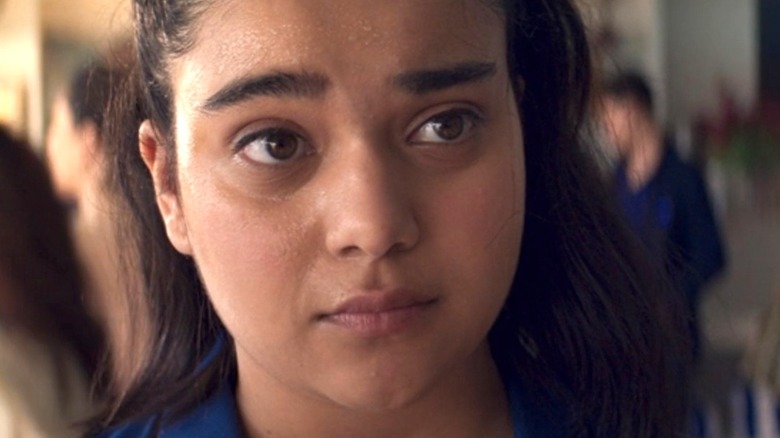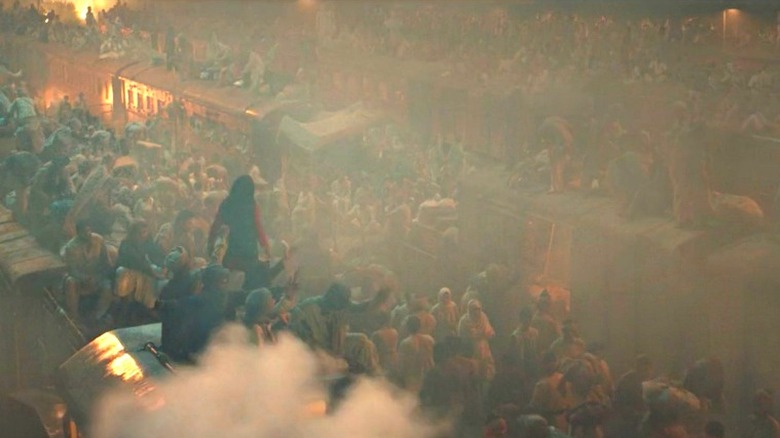Ms. Marvel Episode 4 Impresses Fans In One Big Way
One of the biggest things that separates "Ms. Marvel" from some of the other Marvel projects is the show's willingness to tackle uncomfortable, serious, real-world topics that might not typically appear within the superhero genre. Although the main storyline of the series concerns the struggles of Kamala Khan, aka Ms. Marvel (Iman Vellani) to control her newly discovered powers and protect the world from interdimensional beings known as the Clandestines, the series also explores some pretty heavy subject matter in regards to Kamala's own family history.
Episode 4, in particular, spends a lot of time exploring the intergenerational trauma within Kamala's extended family, which traces all the way back to the Partition of India in 1947. Specifically, the episode addresses how the tragic disappearance of Kamala's great-grandmother Aisha (Mehwish Hayat) during the Partition led Kamala's grandmother, Sana (Samina Ahmad), to neglect her own daughter, Muneeba (Zenobia Shroff) during her childhood. As if tackling this intergenerational trauma wasn't bold enough, the end of the episode sees Kamala being transported back in time to Partition-era India. Fans on Reddit found the show's historical representation of the period to be extremely impressive, especially since the Partition remains one of the most traumatic historical events in the history of Pakistan and India.
Fans were impressed by the show's historical representation of the Partition of India and Pakistan
The 1947 Partition of India and Pakistan split the Indian subcontinent into two separate countries: India and Pakistan, the first of which being primarily Hindu, and the latter of which being primarily Muslim. This abrupt separation created around 14 million refugees, and close to two million people perished as they attempted to migrate between the two newly-made nations (via Stanford Libraries). The incomprehensible level of violence and bloodshed that defined this time period seems wholly out of place in a Disney+ superhero show, which is perhaps why so many fans were impressed by "Ms. Marvel's" boldness in depicting the Partition on screen.
"Can't believe I'm seeing one of the most traumatic historic events in Pakistan/Indian history depicted in a marvel series. This show is incredible," wrote Redditor u/baribigbird06. "I can't either," agreed u/vj_c. "It's amazing & large parts of this episode made me actually cry. I'm British-Indian ... this is the most relatable MCU entry to date." Indeed, the gut-wrenching final moments of Episode 4, wherein we watch thousands of people scrambling onto trains for a chance at survival, is unlike anything we've seen thus far in the Marvel Cinematic Universe.
Perhaps even more impressive are the many users who chimed in to say that "Ms. Marvel" is the first time they ever learned about the Partition, and that the series' depiction of it made a significant impact on them. "I've only heard of the Partition in passing and never really knew what it was," wrote u/cubcus. "This show opened my eyes in such a massive way. The final scene, brief as it is, was haunting."

